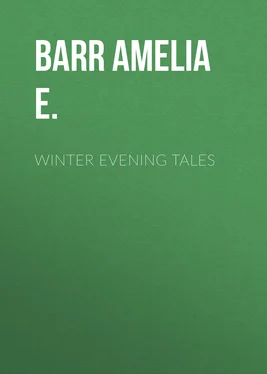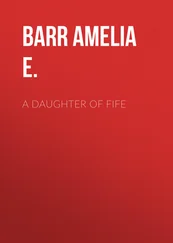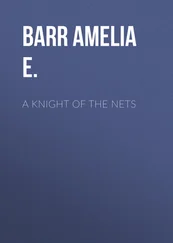Amelia Barr - Winter Evening Tales
Здесь есть возможность читать онлайн «Amelia Barr - Winter Evening Tales» — ознакомительный отрывок электронной книги совершенно бесплатно, а после прочтения отрывка купить полную версию. В некоторых случаях можно слушать аудио, скачать через торрент в формате fb2 и присутствует краткое содержание. Жанр: foreign_prose, foreign_antique, на английском языке. Описание произведения, (предисловие) а так же отзывы посетителей доступны на портале библиотеки ЛибКат.
- Название:Winter Evening Tales
- Автор:
- Жанр:
- Год:неизвестен
- ISBN:нет данных
- Рейтинг книги:5 / 5. Голосов: 1
-
Избранное:Добавить в избранное
- Отзывы:
-
Ваша оценка:
- 100
- 1
- 2
- 3
- 4
- 5
Winter Evening Tales: краткое содержание, описание и аннотация
Предлагаем к чтению аннотацию, описание, краткое содержание или предисловие (зависит от того, что написал сам автор книги «Winter Evening Tales»). Если вы не нашли необходимую информацию о книге — напишите в комментариях, мы постараемся отыскать её.
Winter Evening Tales — читать онлайн ознакомительный отрывок
Ниже представлен текст книги, разбитый по страницам. Система сохранения места последней прочитанной страницы, позволяет с удобством читать онлайн бесплатно книгу «Winter Evening Tales», без необходимости каждый раз заново искать на чём Вы остановились. Поставьте закладку, и сможете в любой момент перейти на страницу, на которой закончили чтение.
Интервал:
Закладка:
At length, without notice, the family left Newport, and went to stay a month with some relative near Boston. A pitiful little note from Christine informed him of this fact; but as he received no information as to the locality of her relative's house, and no invitation to call, he was compelled for the present to do as Christine asked him—wait patiently for their return.
At first he got a few short tender notes, but they were evidently written in such sorrow that he was almost beside himself with grief and anger. When these ceased he went to Boston, and without difficulty found the house where Christine was staying. He was received at first very shyly by Mrs. Stromberg, but when Franz poured out his love and misery, the poor old lady wept bitterly, and moaned out that she could not help it, and Christine could not help it, and that they were all very miserable.
Finally she was persuaded to let him see Christine, "just for five minutes." The poor girl came to him, a shadow of her gay self, and, weeping in his arms, told him he must bid her good-by forever. The five minutes were lengthened into a long, terrible hour, and Franz went back to New York with the knowledge that in that hour his life had been broken in two for this life.
One night toward the close of November his friend Louis called. "Franz," he said, "have you heard that Christine Stromberg is to marry old Clarke?"
"Yes."
"No one can trust a woman. It is a shame of Christine."
"Louis, speak of what you know. Christine is an angel. If a woman appears to do wrong, there is probably some brute of a man behind her forcing her to do it."
"I thought she was to be your wife."
"She is my wife in soul and feeling. No one, thank God, can help that. If I was Clarke, I would as willingly marry a corpse as Christine Stromberg. Do not speak of her again, Louis. The poor innocent child! God bless her!" And he burst into a passion of weeping that alarmed his friend for his reason, but which was probably its salvation.
In a week Franz had left for Europe, and the next Christmas, Christine and James Barker Clarke were married, and began housekeeping in a style of extravagant splendor. People wondered and exclaimed at Christine's reckless expenditure, her parents advised, her husband scolded; but though she never disputed them, she quietly ignored all their suggestions. She went to Paris, and lived like a princess; Rome, Vienna and London wondered over her beauty and her splendor; and wherever she went Franz followed her quietly, haunting her magnificent salons like a wretched spectre.
They rarely or never spoke. Beyond a grave inclination of the head, or a look whose profound misery he only understood, she gave him no recognition. The world held her name above reproach, and considered that she had done very well to herself.
Ten years passed away, but the changes they brought were such as the world regards as natural and inevitable. Christine's mother died and her father married again; and Christine had a son and a daughter. Franz watched anxiously to see if this new love would break up the icy coldness of her manners. Sometimes he was conscious of feeling angrily jealous of the children, but he always crushed down the wretched passion. "If Christine loved a flower, would I not love it also?" he asked himself; "and these little ones, what have they done?" So at last he got to separate them entirely from every one but Christine, and to regard them as part and portion of his love.
But at the end of ten years a change came, neither natural nor expected. Franz was walking moodily about his library one night, when Louis came to tell him of it, Louis was no longer young, and was married now, for he had found out that the beaten track is the safest.
"Franz," he said, "have you heard about Clarke? His affairs are frightfully wrong, and he shot himself an hour ago."
"And Christine? Does she know? Who has gone to her?"
"My wife is with her. Clarke shot himself in his own room. Christine was the first to reach him. He left a letter saying he was absolutely ruined."
"Where will Christine and the children go?"
"I suppose to her father's. Not a pleasant place for her now. Christine's step-mother dislikes both her and the children."
Franz said no more, and Louis went away with a feeling of disappointment. "I thought he would have done something for her," he said to his wife. "Poor Christine will be very poor and dependent."
Ten days after he came home with a different story. "There never was a woman as lucky about money as Cousin Christine," he said. "Hardy & Hall sent her notice to-day that the property at Ryebeach settled on her before her marriage by Mr. Clarke was now at her disposal. It seems the old gentleman anticipated the result of his wild speculations, and in order to provide for his wife, quietly bought and placed in Hardy's charge two beautifully furnished cottages. There is something like an accumulation of sixteen thousand dollars of rentage; and as one is luckily empty, Christine and the children are going there at once. I always thought the property was Hardy's own before. Very thoughtful in Clarke."
"It is not Clarke one bit. I don't believe he ever did it. It is some arrangement of Franz Müller's."
"For goodness' sake don't hint such a thing, Lizzie! Christine would not go, and we should have her here very soon. Besides, I don't believe it. Franz took the news very coolly, and he has kept out of my way since."
The next day Louis was more than ever of his wife's opinion. "What do you think, Lizzie?" he said. "Franz came to me to-day and asked if Clarke did not once loan me two thousand dollars. I told him Clarke gave me two thousand about the time we were married."
"'Say loaned , Louis,' he answered, 'to oblige me. Here is two thousand and the interest for six years. Go and pay it to Christine; she must need money.' So I went."
"Is she settled comfortably?"
"Oh, very. Go and see her often. Franz is sure to marry her, and he is growing richer every day."
It seemed as if Louis's prediction would come true. Franz began to drive out every afternoon to Ryebeach. At first he contented himself with just passing Christine's gate. But he soon began to stop for the children, and having taken them a drive, to rest a while on the lawn, or in the parlor, while Christine made him a cup of tea.
For Franz tired very easily now, and Christine saw what few others noticed: he had become pale and emaciated, and the least exertion left him weary and breathless. She knew in her heart that it was, the last summer he would be with her. Alas! what a pitiful shadow of their first one! It was hard to contrast the ardent, handsome lover of ten years ago with the white, silently happy man who, when October came, had only strength to sit and hold her hand, and gaze with eager, loving eyes into her face.
One day his physician met Louis on Broadway. "Mr. Curtin," he said, "your friend Müller is very ill. I consider his life measured by days, perhaps hours. He has long had organic disease of the heart. It is near the last."
"Does he know it?"
"Yes, he has known it long. Better see him at once."
So Louis went at once. He found Franz calmly making his last preparations for the great event. "I am glad you are come, Louis," he said; "I was going to send for you. See this cabinet full of letters. I have not strength left to destroy them; burn them for me when—when I am gone.
"This small packet is Christine's dear little notes: bury them with me: there are ten of them, every one ten years old."
"Is that all, dear Franz?"
"Yes; my will has long been made. Except a legacy to yourself, all goes to Christine—dear, dear Christine!"
"You love her yet, then, Franz?"
"What do you mean? I have loved her for ages. I shall love her forever. She is the other half of my soul. In some lives I have missed her altogether let me be thankful that she has come so near me in this one."
Читать дальшеИнтервал:
Закладка:
Похожие книги на «Winter Evening Tales»
Представляем Вашему вниманию похожие книги на «Winter Evening Tales» списком для выбора. Мы отобрали схожую по названию и смыслу литературу в надежде предоставить читателям больше вариантов отыскать новые, интересные, ещё непрочитанные произведения.
Обсуждение, отзывы о книге «Winter Evening Tales» и просто собственные мнения читателей. Оставьте ваши комментарии, напишите, что Вы думаете о произведении, его смысле или главных героях. Укажите что конкретно понравилось, а что нет, и почему Вы так считаете.












